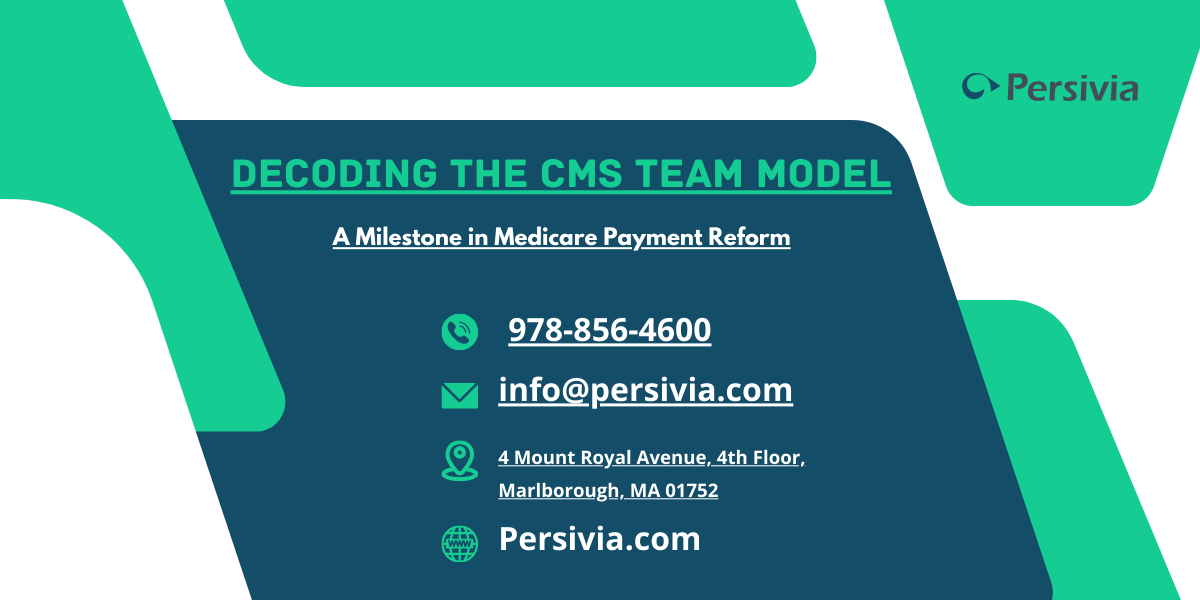
Medicare is making big moves with the Transforming Episode Accountability Model (TEAM). But wait – this isn’t just another healthcare acronym to memorize. The CMS Team Model is set to change how 188 geographic areas handle Medicare payments starting January 2026. This mandatory program targets five specific surgeries and introduces new ways for hospitals to earn or lose money based on their performance. For the first time, hospitals won’t have a choice about joining – unless they were part of previous programs like BPCI Advanced or CJR. Well, here, CMS took a pretty bold step, and it has everyone’s attention. The geographic areas chosen are not at random; CMS is employing Core-Based Statistical Areas (CBSAs) to ensure a mix of urban and rural sites, resulting in a comprehensive test of the model’s effectiveness.
Money Talks: Show Me The Numbers
Here’s where it gets interesting. The TEAM Model isn’t throwing hospitals into the deep end right away. They’ve created three different tracks for hospitals to follow. Each track comes with its own set of rules and financial implications, carefully designed to balance risk and reward.
Track 1: The Training Wheels
- Everyone starts here in year one
- No risk of losing money
- Can earn up to 10% extra
- Perfect for learning the system
- Time to build internal processes
Track 2: The Middle Ground
- For safety net and rural hospitals
- Lower risk limits
- Special protections for vulnerable facilities
- Designed for hospitals serving unique populations
- A balanced approach to risk management
Track 3: The Full Experience
- For everyone else after year one
- Higher risks and rewards
- Maximum potential for both gains and losses
- Requires robust financial planning
- Needs strong quality monitoring systems
CMS will calculate target prices before each performance year, considering factors like hospital size, regional costs, and patient demographics. This pricing system ensures fairness while pushing for efficiency.
Five Surgeries That Matter Most
The CMS Team Model zooms in on five specific surgeries. Each one gets tracked for 30 days after the patient leaves the hospital:
- Fixing broken hips: Common among elderly patients, with high variation in outcomes
- Replacing knees and hips: One of Medicare’s most frequent procedures
- Spinal fusion surgery: Complex procedures with significant cost variations
- Heart bypass operations: Critical procedures with long recovery periods
- Major bowel procedures: Requires extensive post-operative care
Why these five? They’re common, costly, and have room for improvement in both quality and cost. The 30-day tracking period ensures hospitals maintain responsibility for patient outcomes well beyond discharge, promoting better follow-up care and reduced readmissions.
The Quality Question
This is where hospitals really need to pay attention. CMS isn’t just watching the money – they’re keeping score on quality too. The Composite Quality Score (CQS) will directly impact how much money hospitals make or lose. The system aims to prevent cost-cutting measures that might harm patient care.
What’s being watched:
- Patient outcomes during and after procedures
- Care coordination efforts between departments
- Post-surgery complications and readmission rates
- Demographic data reporting for equity analysis
- Patient satisfaction and experience metrics
- Long-term recovery tracking
- Communication effectiveness with patients
Smart hospitals are already planning how to track these metrics and improve their scores. Success requires a comprehensive approach to data collection and analysis.
Playing Well With Others
The Team Model CMS approach pushes hospitals to work better with other healthcare providers. They can even share their bonus payments with partners who help achieve better results. This means:
- Primary care doctors get more involved in pre and post-surgical care
- Post-surgery care gets more attention and resources
- Different departments need to communicate better about patient needs
- Patient handoffs become smoother and more coordinated
- Care transitions require detailed planning and execution
- Community health providers become key partners
- Rehabilitation services integrate more closely with hospital care
The Tech Side of Things
Running a successful TEAM program needs solid Digital Health Platform support. Modern technology isn’t just helpful – it’s essential for managing the complex requirements of this program. Hospitals need systems that can:
- Track every penny spent on patient care across the episode
- Monitor quality metrics in real time with automated alerts
- Share data between departments seamlessly
- Show where improvements are needed through analytics
- Generate required reports automatically
- Integrate with existing hospital systems
- Support clinical decision-making
- Manage patient communication effectively
Looking Ahead: 2026-2030
The next five years will reshape how Medicare handles payments. CMS wants every Medicare fee-for-service patient in value-based care by 2030. That’s ambitious, but TEAM is a big step toward making it happen. This transition period gives hospitals time to prepare and adapt.
What hospitals should do now:
- Review their surgical processes and outcomes
- Update their technology infrastructure
- Train staff on new requirements and processes
- Build partnerships with other providers
- Establish data collection protocols
- Create quality improvement teams
- Develop patient education programs
- Plan financial strategies for different scenarios
Want to Get Ahead of the Game?
CMS Team Model is coming, ready or not. But here’s the good news – Persivia’s already got the tools you need. Our Digital Health Platform was built for exactly this kind of change. We handle the tech so you can focus on patient care. Our system integrates seamlessly with your existing workflows while providing the advanced capabilities needed for TEAM success.
Why wait until 2026? Get your hospital TEAM-ready today!
Contact Persivia to see how our platform makes TEAM compliance straightforward and manageable. We’ll help you turn this Medicare change into an opportunity for better care and better revenue.





Leave a Reply